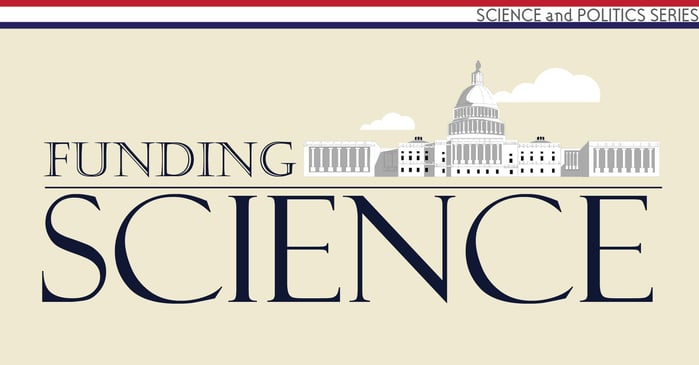
 The US government is one of the largest funders of scientific study in the world. The National Institutes of Science alone funds more medical research than any other source globally. How does the federal government allocate funds to study science? Who decides what goes where? And what role does the President play in this funding? Today we will delve into the complicated process of funding allocations, and how that money funds science.
The US government is one of the largest funders of scientific study in the world. The National Institutes of Science alone funds more medical research than any other source globally. How does the federal government allocate funds to study science? Who decides what goes where? And what role does the President play in this funding? Today we will delve into the complicated process of funding allocations, and how that money funds science.
The first concept to understand in this process is the role of taxes. Each year, federal taxes are collected, and then Congress spends them. If all taxes are a big pie, then the first slices separate the mandatory spending (Social Security and Medicare for the most part) from the discretionary spending, and leaves a smaller slice for interest on debt (we’ll ignore this one for today). The ratio for these slices is about 65-30-5.
The next concept is how that discretionary money is spent. The budgeting process begins in February with the President submitting his or her request for a budget to Congress, complete with ideas on how to spend it. Congress is then responsible for choosing how to spend, or appropriate, those funds in 12 appropriations bills, each with a specific category of programs (Education, Defense, Commerce, etc.). Both the Senate and the House of Representatives have subcommittees to work on each separate appropriations bill independent of one another, but in the end there is one unified bill that must be approved by all of Congress and then is submitted to the President for signing. In an ideal world, this process is followed in “regular order” and done by October. (Recently, this has not been the case, with disputes and arguments delaying or even stopping the process.)
![]()
So how is science research funded? Of the 12 appropriation bills, 7 have programs that deal with scientific research. Within those bills, agencies such as the National Institute of Health, the Centers for Disease Control, the Environmental Protection Agency, and many others receive their own individual slice of the pie. Then they in turn decide which programs to fund.
![]() In general, science is considered “Research and Development” when it comes to federal funding. That category can fall under agriculture, defense, health, and many other areas, which is why science can be funded in many different appropriations bills.
In general, science is considered “Research and Development” when it comes to federal funding. That category can fall under agriculture, defense, health, and many other areas, which is why science can be funded in many different appropriations bills.
Why does the federal government fund science in the first place? The relationship between government and science originates in times of war, when the need for weapons and defense was a matter of national security. From ancient times to the modern day, governments have looked to scientists to come up with ways to defeat an enemy and keep citizens safe. The case was no different in the US, with scientific discoveries playing a significant role in conflicts both on our ground and around the globe. But in between conflicts, the need to be at the forefront of scientific discovery is also a means to national security. From advances in genetics to exploring the universe, being on the front lines ensures that our country will benefit from the discoveries as well as retain a voice in deciding where we go next as a human race.
Many would argue that scientific discovery is one of the most important ways to secure a safer and healthier future for all of us. Unfortunately, there is only so much funding to go around, coupled with a hotly contested and politicized process to get funding to the right projects. (And in many cases, you can’t really tell what the right projects are at the beginning – you have to wait and see what turns out to be successful.)
What can an individual citizen do to make sure that science continues to be supported? Call your congressperson (Representatives and Senators)! As you can see from this post, they play a huge role in deciding who gets what. Also, speak up for science. Make sure your friends and family know that funding science is funding our future and securing a place for our nation as a global leader. There is hardly a scientific breakthrough that wasn’t supported in some way with federal funding.
Our next and final post will explore the idea of private vs. public funding of science research as we tackle the contrasting philosophies of our two major party candidates for President. Join us as we complete our series on Science and Politics!
![EOScu Logo - Dark - Outlined [07182023]-01](https://blog.eoscu.com/hubfs/Eoscu_June2024/Images/EOScu%20Logo%20-%20Dark%20-%20Outlined%20%5B07182023%5D-01.svg)




